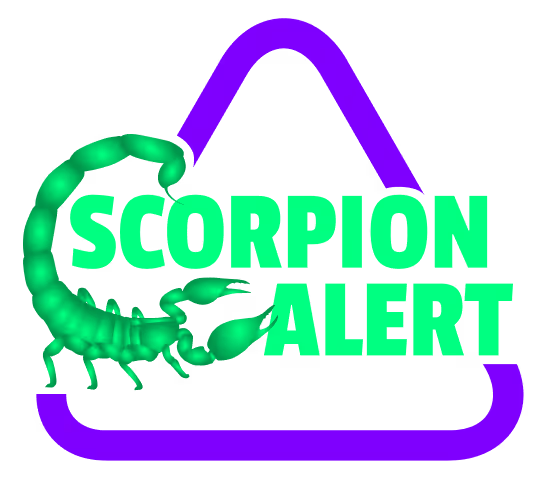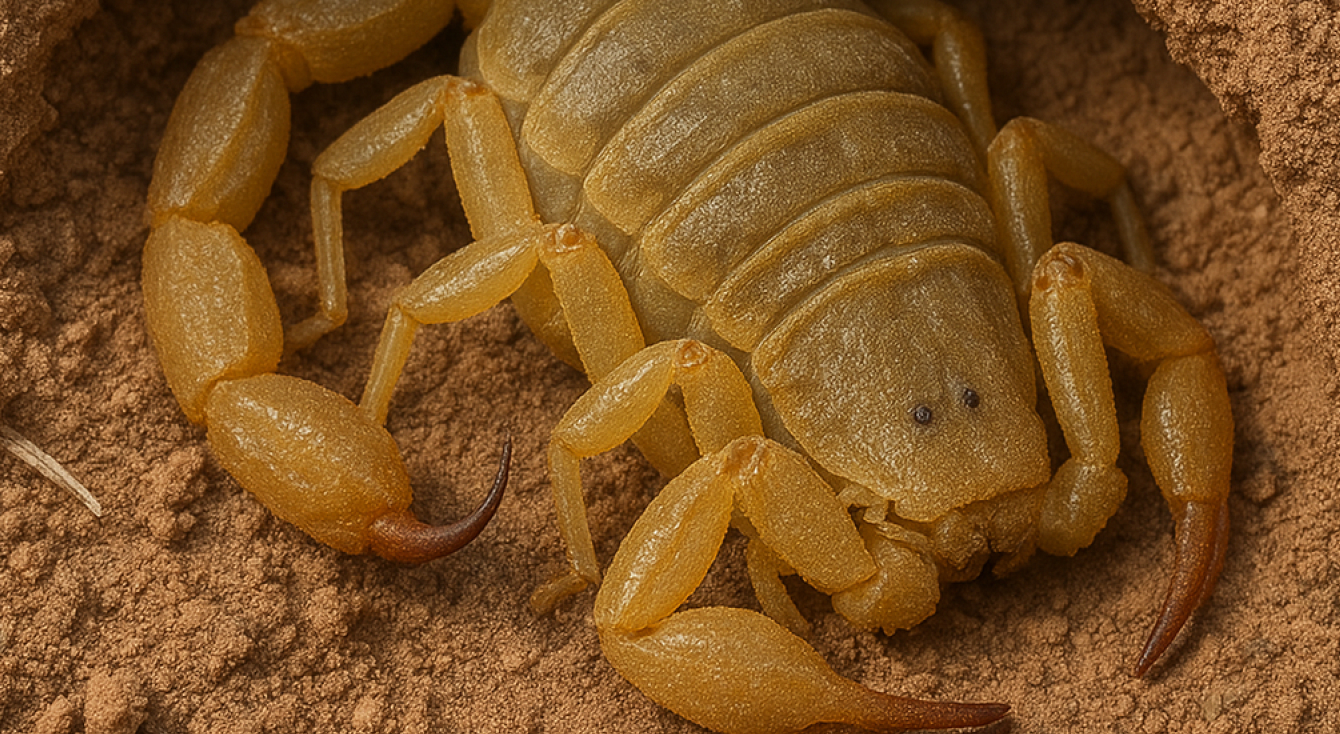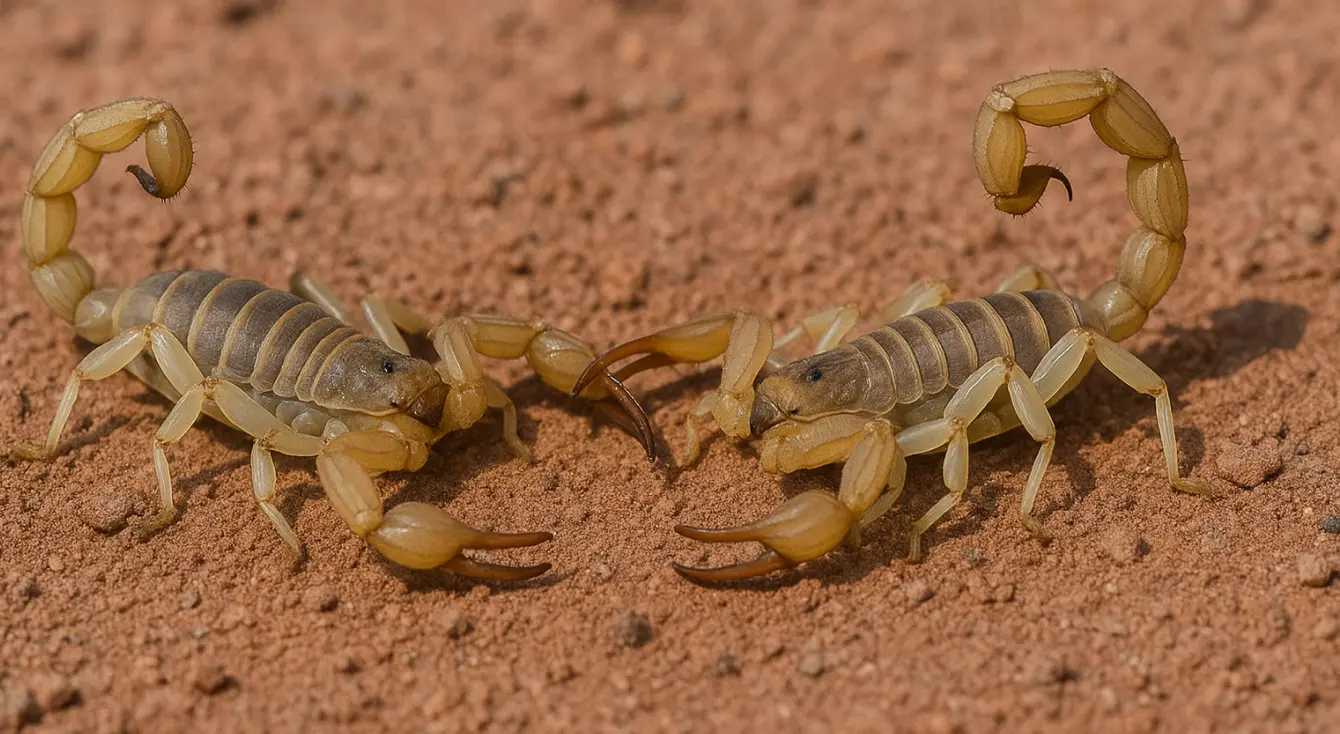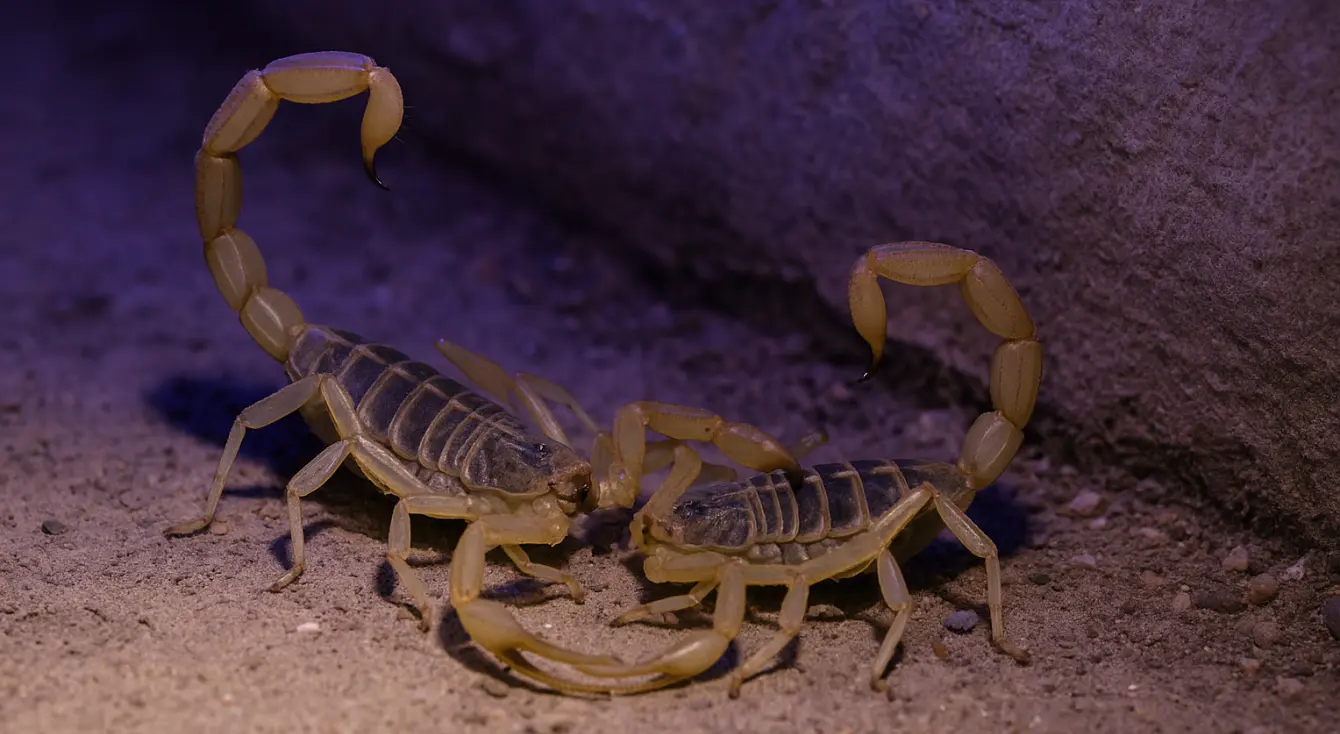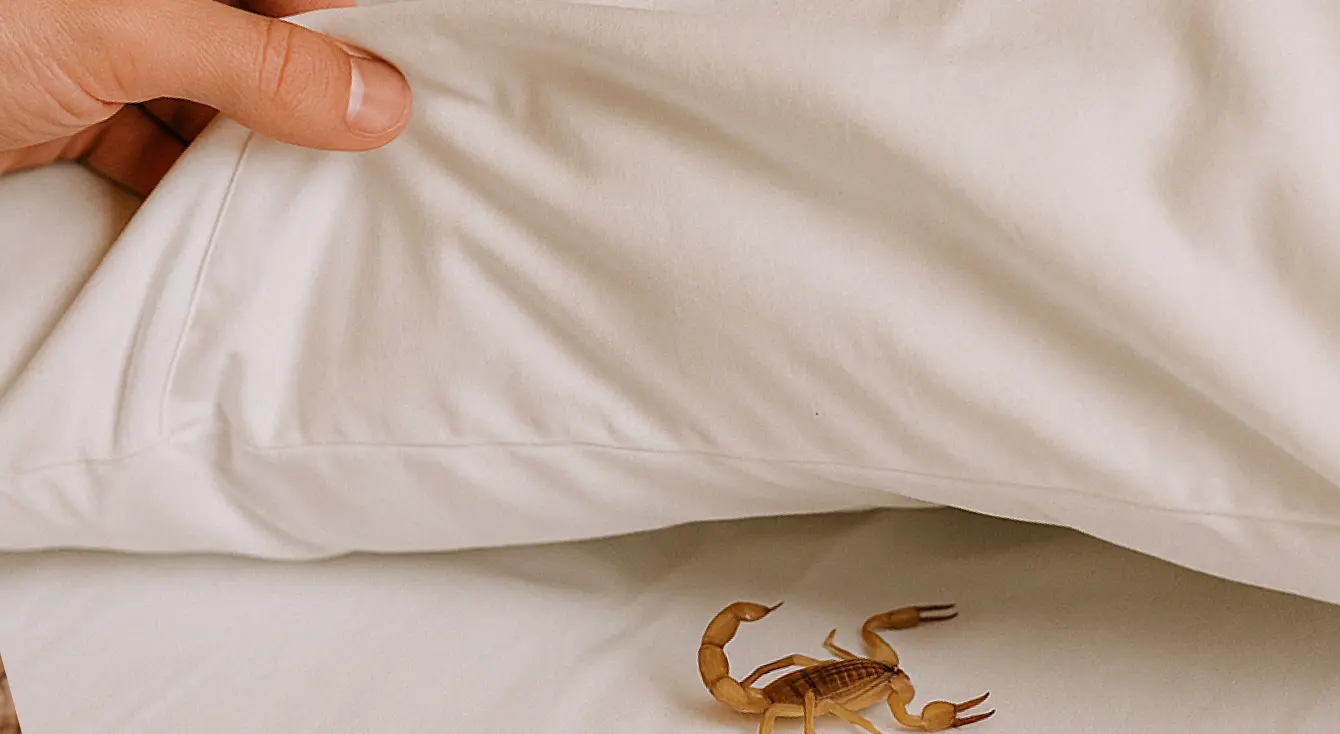When temperatures start to drop, you might breathe a little easier—scorpion season must be over, right? Not so fast.
Do Scorpions Really Hibernate?
Sort of. Scorpions don’t hibernate in the traditional sense like bears do. Instead, they enter a state called diapause—a kind of suspended animation triggered by cold temperatures and reduced food availability.
During diapause, their metabolism slows way down, and they become largely inactive. But they’re not gone. In fact, they may be closer than you think.
Where Do They Go?
Scorpions seek out warm, dark, and insulated spots to ride out the winter. In places like Las Vegas or Albuquerque, that often means:
- Wall voids and baseboards
- Garages and storage boxes
- Under bathroom sinks or behind water heaters
Basically, anywhere in your home that stays relatively warm and undisturbed can become winter quarters for a scorpion.
Why It Matters
Because they’re less active, scorpions are harder to detect in winter—but not impossible. Just stepping into a dark garage barefoot could put you face-to-claw with one that’s been tucked away for weeks.
Scorpion Detectors still play a role here. While you might not catch as many in action, you can still spot signs of movement or track when activity picks back up. Plus, early spring is when they become active again—often all at once.
Tips for Winter Scorpion Prevention
- Seal cracks around baseboards and windows
- Keep boxes and clutter off garage floors
- Don’t store firewood or cardboard inside your home
Scorpions don’t vanish when winter hits—they just get quieter. By knowing their habits, you can stay one step ahead and make sure your home isn’t their winter retreat.
